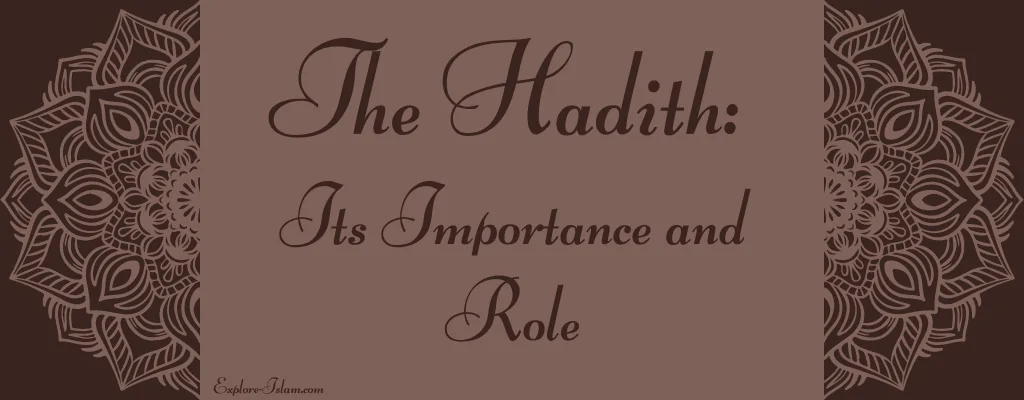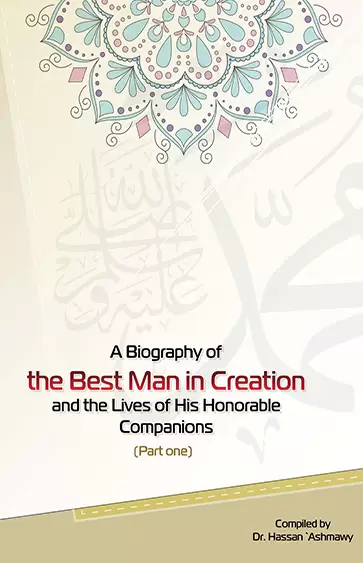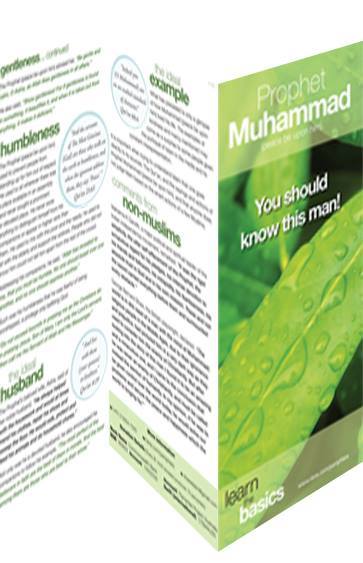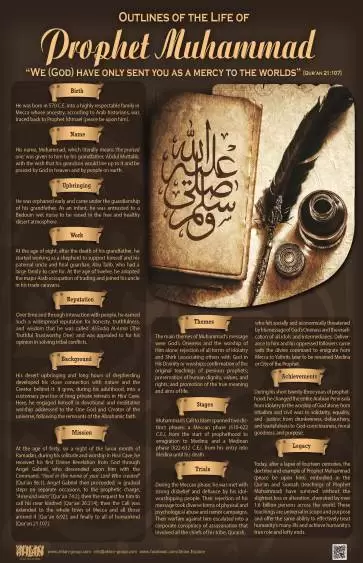The Hadith is a collection of sayings and actions attributed to Prophet Muhammad, which were recorded by his companions and later compiled into written form.
It is considered to be the second most important source of Islamic law and guidance after the Quran. The Hadith covers a wide range of topics, including religious practices, social etiquette, and moral values.
There are different collections of Hadith, with the most widely accepted being those compiled by Bukhari and Muslim. Muslims use the Hadith as a guide for their daily lives and to better understand the teachings of Islam.
Here we will learn the following:
- What is Hadith in Islam?
- Importance of Hadith
- Types of Hadith
- Importance of Hadith in the Light of the Qur’an
- Why is the Hadith Important?
- What is the difference between Hadith and Sunnah?
- How does Hadith play a role in Islamic law?
- Why are some Hadiths considered weak?
- How do Hadiths complement the teachings of the Quran?
- What is the process of authentication of Hadiths?
- How does Hadith guide a Muslim’s daily life?
- What is the controversy around the use of Hadiths?
- How are Hadiths used in Islamic jurisprudence?
What is Hadith in Islam?
Hadith in Islam refers to the recorded sayings, actions, and teachings of Prophet Muhammad. It is considered to be the second most important source of Islamic guidance after the Qur’an. Hadith provides practical guidance on how to live a righteous life in accordance with Islamic principles and values.
It also serves as a means of preserving and understanding the Qur’an, providing context and clarification for its ambiguous or complex verses. The authenticity of Hadith is established through a rigorous process of verification and authentication by Islamic scholars.
What is the importance of Hadith in Islam?
Hadith is an important source of guidance and knowledge for Muslims, second only to the Qur’an. Hadith refers to the sayings, actions, and teachings of Prophet Muhammad, as recorded by his companions and followers.
Hadith provides a detailed account of the Prophet’s life, his teachings, and his actions, which serve as a model for Muslims to follow. It also provides guidance on various aspects of Islamic life, including prayer, fasting, charity, and social interactions.
The study of Hadith is important for Muslims because it helps them understand the context and application of the teachings of Islam in their daily lives. It also helps them to distinguish authentic teachings from false or fabricated ones.
Muslim scholars have spent centuries analyzing and categorizing Hadith, and developing a science of Hadith criticism to ensure the authenticity and reliability of the Hadith. This process has helped to preserve the integrity of Islamic teachings and ensure that they remain relevant and applicable to Muslims today.
Overall, Hadith plays a crucial role in shaping Islamic beliefs and practices, and serves as a valuable source of guidance and inspiration for Muslims around the world.
Importance of Hadith:
The Hadith is important for several reasons:
1. The Hadith provides a deeper understanding of the Quran.
The Hadith helps to clarify and explain the teachings of the Quran, which can sometimes be ambiguous or difficult to interpret.
2. The Hadith provides guidance on religious practices.
The Hadith contains detailed instructions on how to perform various religious practices, such as prayer, fasting, and pilgrimage.
3. The Hadith provides guidance on social etiquette.
The Hadith contains teachings on how to interact with others in a kind and respectful manner, and how to maintain good relationships with family, friends, and neighbors.
4. The Hadith provides moral guidance.
The Hadith contains teachings on ethical behavior, such as honesty, compassion, and justice.
5. The Hadith helps to preserve the legacy of Prophet Muhammad.
The Hadith provides a record of the sayings and actions of Prophet Muhammad, which helps to preserve his legacy and teachings for future generations.
Overall, the Hadith is an important source of guidance for Muslims, providing them with practical advice on how to live their lives in accordance with Islamic principles.
6. The Sunnah provides guidance
The Sunnah provides guidance on the ruling of temporary marriage, also known as Mut’ah. It is a controversial practice that is not universally accepted among Muslims. According to the Sunnah, temporary marriage was allowed during the early days of Islam, but it was prohibited later.
Prophet Muhammad is reported to have said, “Verily, Allah has forbidden temporary marriage and every other type of marriage that is not permanent.” (Sunan Ibn Majah) Therefore, most scholars consider temporary marriage to be haram (forbidden) in Islam.
7- Sunnah clarification of the ruling of Islam:
For example, The Sunnah clarification of the ruling on Prohibiting marriage between a woman and her sister
In Islam, it is prohibited for a man to marry two sisters at the same time. This ruling is based on the Sunnah of Prophet Muhammad (peace be upon him) who said, “Do not marry a woman and her sister at the same time.” (Sahih Bukhari)
The reason for this prohibition is to maintain good relations between family members and to prevent jealousy and conflict between sisters. It also ensures that each woman is given the respect and love she deserves as an individual and not seen as a substitute for her sister.
However, if a man marries one sister and then divorces her, he is allowed to marry the other sister if he wishes. This is based on the Hadith of Prophet Muhammad (peace be upon him) who said, “If a man divorces his wife, he is not allowed to marry her again until she has married another man.” (Sahih Bukhari)
Overall, the Sunnah clarifies that marrying two sisters at the same time is prohibited in Islam, but marrying one sister after divorcing the other is permissible.
Types of Hadith:
There are several types of Hadiths, which are classified based on their authenticity, content, and transmission. Some of the most common types of Hadiths include:
1. Sahih Hadith:
These are the most authentic Hadiths, which have been verified through a rigorous process of examination and authentication. They are considered to be the most reliable source of Islamic law and theology.
2. Hasan Hadith:
These are Hadiths that are considered to be reliable, but not as strong as Sahih Hadiths. They may have some minor flaws in their chain of transmission or content.
3. Da’if Hadith:
These are weak Hadiths, which have some major flaws in their chain of transmission or content. They are not considered to be reliable sources of Islamic law and theology.
4. Mutawatir Hadith:
These are Hadiths that have been narrated by a large number of people in each generation, making their authenticity beyond doubt.
5. Mashhur Hadith:
These are Hadiths that have been narrated by a large number of people, but not to the extent of Mutawatir Hadith.
6. Qudsi Hadith:
These are Hadiths in which Allah’s words are narrated by Prophet Muhammad.
7. Mawdu’ Hadith:
These are fabricated or forged Hadiths, which were falsely attributed to Prophet Muhammad. They are considered to be completely unreliable and should be rejected.
Importance of Hadith in the Light of the Qur’an:
The importance of Hadith in the light of the Qur’an is significant because the Qur’an alone does not provide detailed guidance on all aspects of life.
The Hadiths, which are the recorded sayings and actions of Prophet Muhammad, provide a practical application of the principles outlined in the Qur’an. They offer guidance on how to pray, fast, give charity, treat others, and live a righteous life.
The Qur’an itself acknowledges the importance of following the example of Prophet Muhammad. In Surah Al-Ahzab, Verse 21, it says,
“لَّقَدْ كَانَ لَكُمْ فِى رَسُولِ ٱللَّهِ أُسْوَةٌ حَسَنَةٌۭ لِّمَن كَانَ يَرْجُوا۟ ٱللَّهَ وَٱلْيَوْمَ ٱلْـَٔاخِرَ وَذَكَرَ ٱللَّهَ كَثِيرًۭا ٢١.”
“Indeed, in the Messenger of Allah you have an excellent example for whoever has hope in Allah and the Last Day, and remembers Allah often.”
This verse emphasizes that Muslims should follow the example of Prophet Muhammad, and the Hadith provides a detailed account of his teachings and actions.
Furthermore, the Hadith also serves as a means of preserving and understanding the Qur’an. Many verses in the Qur’an are ambiguous or require further explanation. The Hadith provides context and clarification for these verses, enabling Muslims to better understand and apply them in their daily lives.
In conclusion, Hadith is an essential source of guidance for Muslims, providing practical guidance on how to live a righteous life in accordance with Islamic principles and values. Its importance in the light of the Qur’an cannot be overstated, as it provides a comprehensive guide for Muslims on how to follow the example of Prophet Muhammad and live a life that is pleasing to Allah.
Why is the Hadith Important?
The Hadith is important for several reasons:
1. It provides practical guidance:
The Hadith provides practical guidance on how to live a righteous life in accordance with Islamic principles and values. It covers a wide range of topics, including worship, ethics, social behavior, and personal conduct.
2. It helps understand the Qur’an:
The Hadith provides context and clarification for the ambiguous or complex verses of the Qur’an. It helps to understand the meaning and application of the verses in daily life.
3. It preserves the teachings of Prophet Muhammad:
The Hadith is a record of the sayings, actions, and teachings of Prophet Muhammad. It serves as a means of preserving his teachings and ensuring that they are passed down to future generations.
4. It establishes Islamic law:
The Hadith is used as a source of Islamic law. It provides guidance on matters such as marriage, divorce, inheritance, and criminal justice.
5. It strengthens Islamic identity:
The Hadith reinforces Islamic identity by providing a common set of beliefs and practices for Muslims around the world. It helps to create a sense of unity and community among Muslims.
What is the difference between Hadith and Sunnah?
Hadith refers to the sayings, actions, and approvals of Prophet Muhammad, while Sunnah refers to the way of life or the customs and traditions of Prophet Muhammad.
In other words, Hadith is a collection of narrations about the Prophet’s words and deeds, while Sunnah encompasses all aspects of the Prophet’s life, including his behavior, habits, and practices. Hadith is considered a primary source of Islamic law, while Sunnah is a broader concept that includes both religious and cultural practices.
How does Hadith play a role in Islamic law?
Hadith plays a crucial role in Islamic law as it is one of the primary sources of Islamic jurisprudence. Islamic scholars use Hadith to understand and interpret the Quran, which is the primary source of Islamic law.
Hadith provides guidance on how to apply the teachings of the Quran in everyday life and offers examples of how Prophet Muhammad practiced and interpreted Islamic law. Islamic legal rulings are often based on Hadith, and the authenticity and reliability of Hadith are critical in determining the validity of legal rulings.
Therefore, Hadith plays a significant role in shaping Islamic law and guiding Muslims in their daily lives.
Why are some Hadiths considered weak?
Some Hadiths are considered weak due to problems with their chain of narrators or content. For example, the narrator may be unknown or unreliable, or the Hadith may contain inconsistencies or contradictions with other authentic Hadiths or with the Quran.
As a result, scholars may consider such Hadiths to be less reliable and not suitable for use in Islamic jurisprudence or religious practices.
How do Hadiths complement the teachings of the Quran?
Hadiths complement the teachings of the Quran by providing additional guidance and clarification on various aspects of Islamic belief and practice. The Quran provides broad principles and guidelines for Muslims to follow, but Hadiths provide specific examples and details on how to implement those principles in daily life.
For example, the Quran instructs Muslims to pray, but Hadiths provide details on how to perform the prayer, including the number of units, the specific words and actions, and the times of day when it should be performed.
Hadiths also provide guidance on other aspects of Islamic practice, such as fasting, charity, pilgrimage, and ethical behavior. By studying both the Quran and Hadiths, Muslims can gain a deeper understanding of their faith and how to live according to its teachings.
What is the process of authentication of Hadiths?
The process of authentication of Hadiths involves several steps:
1. Isnad verification:
The chain of narrators is examined to ensure that each narrator in the chain is reliable and trustworthy.
2. Textual analysis:
The text of the Hadith is examined to ensure that it is consistent with the teachings of Islam and does not contradict the Quran or other authentic Hadiths.
3. Historical context:
The historical context of the Hadith is examined to ensure that it is not a fabrication or a misinterpretation of the Prophet’s teachings.
4. Comparison with other Hadiths:
The Hadith is compared with other authentic Hadiths to ensure that it is consistent with other teachings of the Prophet.
5. Consensus of scholars:
The Hadith is examined by a group of scholars who reach a consensus on its authenticity based on the above criteria.
Once a Hadith has been authenticated, it is considered a reliable source of guidance for Muslims.
How does Hadith guide a Muslim’s daily life?
Hadith provides guidance for Muslims on how to live their daily lives in accordance with the teachings of Islam. It covers a wide range of topics, including worship, social interactions, ethics, and morality.
For example, Hadith provides guidance on how to perform daily prayers, how to treat one’s parents and family members, how to conduct business ethically, and how to interact with people from different religions and cultures.
Muslims also use Hadith as a source of inspiration and motivation to follow the Prophet’s example and strive towards becoming better Muslims. They believe that by following the teachings of Hadith, they can gain the blessings of Allah and attain success in this life and the hereafter.
Overall, Hadith plays an important role in shaping the beliefs, values, and behaviors of Muslims and serves as a guide for their daily lives.
What is the controversy around the use of Hadiths?
There is a controversy among Muslims regarding the authenticity and reliability of some Hadiths. Some Muslims believe that certain Hadiths have been fabricated or altered over time, while others argue that all Hadiths are authentic and should be followed without question.
This controversy has led to debates and disagreements among Muslims on various issues, such as the role of women in society, the use of violence in the name of Islam, and the interpretation of Islamic law.
How are Hadiths used in Islamic jurisprudence?
Hadiths are used in Islamic jurisprudence as a secondary source of guidance, after the Quran. They provide insight into the actions and sayings of Prophet Muhammad and his companions, which can be used to interpret and apply Islamic law.
Hadiths are categorized based on their authenticity and reliability, with the most reliable ones being given the most weight in legal rulings. Islamic scholars use a process called “Hadith authentication” to determine the authenticity of Hadiths, which involves examining the chain of transmission (isnad) and the content (matn) of the Hadith.
Once a Hadith is deemed authentic, it can be used to derive legal rulings (fatwas) on various issues, such as prayer, fasting, marriage, and inheritance. However, the interpretation and application of Hadiths can vary among different schools of Islamic jurisprudence.













